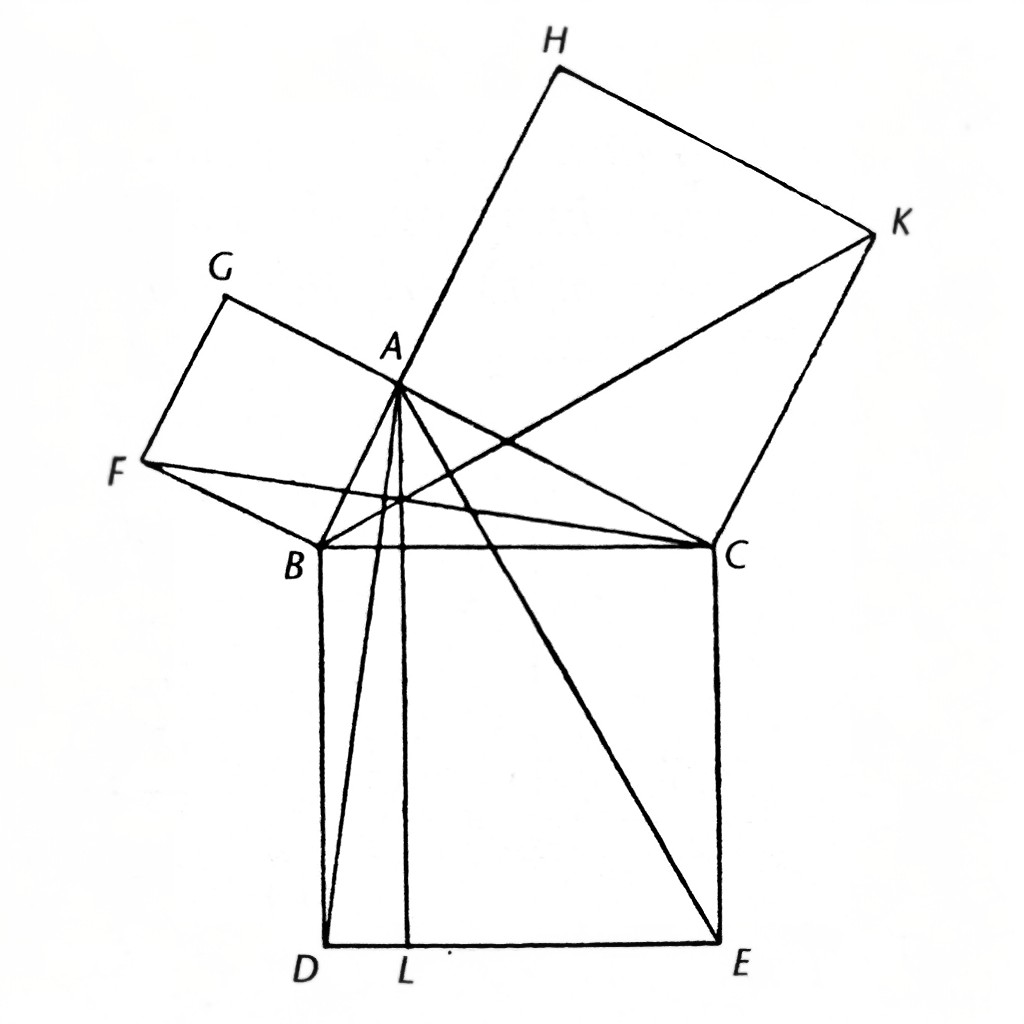Psalms 19:1-2
“The heavens are telling of the glory of God; And their expanse is declaring the work of His hands. Day to day pours forth speech, And night to night reveals knowledge.”
Every discovery backs Him up.
##Old Testament
#####Exodus 21:20-21 (NIV):
“And if a man smite his servant, or his maid, with a rod, and he die under his hand; he shall be surely punished. Notwithstanding, if he continue a day or two, he shall not be punished: for he is his money.”
##New Testament
#####Ephesians 6:5 (NIV):
“Slaves, obey your earthly masters with fear and trembling, in singleness of heart, as you obey Christ”
#####1 Timothy 6:1 (NIV):
“All who are under the yoke of slavery should consider their masters worthy of full respect, so that God’s name and our teaching may not be slandered. Those who have believing masters should not show them disrespect just because they are fellow believers. Instead, they should serve them even better because their masters are dear to them as fellow believers and are devoted to the welfare of their slaves.”
Yep. Real scripture, really in the Bible and needs to be understood.
Those scriptures are not really germane to the question though. I understand the scriptures you posted might seem strange.
Remember that the entire nation of Israel were slaves for hundreds of years in Egypt when they were brought out by God, rescued from that slavery, and set free.
1 Corinthians 7:21-23 NIV “Were you a slave when you were called? Don’t let it trouble you—although if you can gain your freedom, do so. For the one who was a slave when called to faith in the Lord is the Lord’s freed person; similarly, the one who was free when called is Christ’s slave. You were bought at a price; do not become slaves of human beings.”
Galatians 5:1 “It is for freedom that Christ has set us free. Stand firm, then, and do not let yourselves be burdened again by a yoke of slavery.”
Then there’s Philemon, an entire book of the Bible dedicated to Paul’s letter to a slave owner looking for kindness when returning an escaped slave who converted to Christianity.
The Bible can be confusing and even contradictory at times when speaking from this or that person’s point of view. We have Sunday schools where we wrestle with questions in an open forum, and I’m sure you’d be welcome as long as you were not antagonistic.
That’s right. Then after the Israelites were freed, Moses, claiming to be speaking for God, gave them permission to take slaves of their own from the nations around them. Before that, they were told how merciless they could be when bludgeoning those slaves.
The Bible portrays this as moral behavior, and the excuses you’ve given me aren’t convincing. I don’t think there is any excuse for it, but I’m all ears if you want to give it a shot.
deleted by creator
There have been plenty of discoveries opposed by religion X. Those historically do not have significant impact on prevalence of such a religion.
I do think answers explaining why any answer to the original question suffers from logical fallacies are equally good to those that do try to get to the OP’s intent, and I think it is good to have both. I do think the literal answers are more “straight” (and I tend to go to the literate mode when talking about science), so that’s what I went up with.
Science deals with the natural, gods are by definition supernatural.
Science can not either prove or disprove existence of supernatural. It may only erode the reasoning why supernatural should exist.
That reasoning is subjective, and as such, there are no definite answers to your question unless we add additional constraints.
Didn’t some quantum nondeterminism prove the existence of effects without a natural cause? (being divil’s advocate a bit here for the craic)
Yeah all the Bell stuff
If they were, it has nothing to do with nature being supernatural. It just means that nature’s state is not locally real. That does not tie into religion in any objective way.
In addition, both of those articles are (slightly) wrong. There was a lenghty discussion about how in r/physics when they came out. The tl;dr is that it boils down to:
- locality
- realism
- independence of measurement
Pick two.
But that has no relevance to religion other than you can make either philosophical or religious argument out of anything.
The traditional notion of cause and effect is not something all philosophers even agree upon, I mean many materialist philosophers largely rejected the notion of simple cause-and-effect chains that go back to the “first cause” since the 1800s, and that idea is still pretty popular in some eastern countries.
For example, in China they teach “dialectical materialist” philosophy part of required “common core” in universities for any degree, and that philosophical school sees cause and effect as in a sense dependent upon point of view, that an effect being described as a particular cause is just a way of looking at things, and the same relationship under a different point of view may in fact reverse what is considered the cause and the effect, viewing the effect as the cause and vice-versa. Other points of view may even ascribe entirely different things as the cause.
It has a very holistic view of the material world so there really is no single cause to any effect, so what you choose to identify as the cause is more of a label placed by an individual based on causes that are relevant to them and not necessarily because those are truly the only causes. In a more holistic view of nature, Laplacian-style determinism doesn’t even make sense because it implies nature is reducible down to separable causes which can all be isolated from the rest and their properties can then be fully accounted for, allowing one to predict the future with certainty.
However, in a more holistic view of nature, it makes no sense to speak of the universe being reducible to separable causes as, again, what we label as causes are human constructs and the universe is not actually separable. In fact, the physicists Dmitry Blokhintsev had written a paper in response to a paper Albert Einstein wrote criticizing Einstein’s distaste for quantum mechanics as based on his adherence to the notion of separability which stems from Newtonian and Kantian philosophy, something which dialectical materialists, which Blokhintsev self-identified as, had rejected on philosophical grounds.
He wrote this paper many many years prior to the publication of Bell’s theorem which showed that giving up on separability (and by extension absolute determinism) really is a necessity in quantum mechanics. Blokhintsev would then go on to write a whole book called The Philosophy of Quantum Mechanics where in it he argues that separability in nature is an illusion and under a more holistic picture absolute determinism makes no sense, again, purely from materialistic grounds.
The point I’m making is ultimately just that a lot of the properties people try to ascribe to “materialists” or “naturalists” which then later try to show quantum mechanics is in contradiction with, they seem to forget that these are large umbrella philosophies with many different sects and there have been materialist philosophers criticizing absolute determinism as even being a meaningful concept since at least the 1800s.
1700s but yeah
No
Slapping “quantum” in front of something does not make it magic.
Take ‘natural’ to mean ‘being fully explicable by states in the observable world’.
‘Supernatural’ means everything not natural by that definition.
You have results (like Aspect’s experiment) that prove that the world is not naturalist: the world is not fully explainable by observable states causing other states.
That is not the definition that natural sciences use for natural. Going down that rabbit hole is completely meaningless, since we are no longer talking about science at that point.
In addition, if using your definition, nothing is natural according to our current understanding.
That is not the definition that natural sciences use for natural.
Go on then: what definition do they use?
Slapping “quantum” in front of something does not make it magic.
Slapping “quantum” in front of something generally makes it involve indeterminism (excepting the many-worlds interpretation)
Go on then: what definition do they use?
Natural means pretty much “element of the physical universe, identified by observation”.
You’re claiming in another comment to this thread that you have M.Sc., you should be aware of this, please stop wasting everyone’s time.
Slapping “quantum” in front of something generally makes it involve indeterminism (excepting the many-worlds interpretation)
Indeterminism is by no means non-natural, and it does not make things any less observable. We can observe quantum states just fine.
And as for
Yeah all the Bell stuff
“All the Bell stuff” doesn’t have anything to do with “Didn’t some quantum nondeterminism prove the existence of effects without a natural cause?”
And no, it didn’t. AFAIK there are exactly zero physicists who argue that.
You made a ludicrous claim, and are unable or unwilling to back it up even a bit, yet somehow you feel continuing this without anything to show is a good use of anyone’s time. If you are not going to make an actual argument, I do not see value in continuing this conversation, as all it does is make this thread more difficult to read for others who most likely are not very interested watching yet another internet argument sidethread.
Natural means pretty much “element of the physical universe, identified by observation”.
Right. We are in agreement. And indeterminism says that those natural things are not sufficient explanations of experimental results. There is something going on in Aspect’s experiment
Determinism: things are fully explained by natural phenomena, i.e. by observable elements of the physical universe
Indeterminism: observable elements of the physical universe are insufficient to explain experimental results; there is something else, like randomness
AFAIK there are exactly zero physicists who argue that.
We must be misunderstanding each other somewhere. Surely you’re not saying that zero physicists argue indeterminism? Obviously many/most physicists believe in indeterminism.
- A Snapshot of Foundational Attitudes Toward Quantum Mechanics (2013) by Schlosshauer, Kofler, and Zeilinger found that 64% of physicists believe that “Randomness is a fundamental concept in nature” and 48% believe “The randomness is irreducible”. For the question “What is your favorite interpretation of quantum mechanics?”, the most popular answer by some way was the Copenhagn interpretation (which as you know is anti-deterministic)
Lev Vaidman: “Historically, appearance of the quantum theory led to a prevailing view that Nature is indeterministic… Quantum theory and determinism usually do not go together.” (Vaidman, L. (2014). Quantum theory and determinism. Quantum Studies: Mathematics and Foundations, 1(1-2), 5–38. doi:10.1007/s40509-014-0008-4)
You made a ludicrous claim
Yes. And these ludicrous claims are standard in physics for decades now. Specifically, the ludicrous claim that most physicists believe is that there are things going on without natural causes (Natural means pretty much “element of the physical universe, identified by observation”). That’s an extremely standard ludicrous claim about our ludicrous universe.
and are unable or unwilling to back it up even a bit
That’s false.
yet somehow you feel continuing this without anything to show is a good use of anyone’s time. If you are not going to make an actual argument, I do not see value in continuing this conversation, as all it does is make this thread more difficult to read for others who most likely are not very interested watching yet another internet argument sidethread.
Please calm down.
If I say something this person burst into flames for supernatural reasons, I mean without a measurable cause in the observable universe.
That has very little to do with anything related to the arguments you’ve made before, and I am not interested in participating in a Gish Gallop.
Whatever we observe empirically is “natural” by definition. Causality is an assumption, not a law of nature.
Good comment
Quantum mechanics show a break between the classical understanding of physics and the equations and laws derived from plain observation and the probabilistic and unstable nature of matter and energy at the smallest observable level.
Physics isn’t a done deal, we don’t know how a lot of stuff works. Our simplified classical models clearly don’t work on every level, but that doesn’t mean gravity suddenly doesn’t pull the earth and the moon towards each other.
Large scale physics (somewhere between molecules and stars) is full of simplified models. From spherical cows to “assume you’re walking along a perfectly straight, frictionless surface in a vacuum”, very few of the formulae taught in school actually model what really happens. They’re approximations that work at every relevant scale of physics, as we lack the ability to accurately simulate the chaotic nature of individual particles and energy fields.
Scientists were initially hoping that we could use Newton’s laws to describe how atoms interact (and then quarks and such, when they were discovered) and quantum theory has proven that this is not possible. That does not prove or disprove the existence of a higher being, it just proves that earlier extrapolations were wrong.
There’s no common definition of “natural cause” within physics as a science, so there’s no way to prove or disprove anything regarding natural causes. You can define the term within a specific paper, but that just proves or disproves something within the confines of that specific paper, experiment, and definition. I can call a puddle of water “Jesus”, evaporate the puddle, and claim to have killed God, but outside of my own wacky experiment nothing religious has happened.
Science will never be able to prove a negative, so no matter what happens, belief in the mere existence of the supernatural is always a possibility. Religion brings forth very few scientifically provable facts. We know lightning is caused by electrical discharge now, but we’ll never be able to prove that it’s not caused by an invisible Donar riding around in the heavens, swinging his hammer.
Science will never be able to prove a negative
Oh dear. There are already two lemmings in this thread spreading this one.
Would you and @muntedcrocodile@lemm.ee and @Didros@beehaw.org please just look up “can you prove a negative or not” using your research method of choice. Make this the day you learn.
You can prove a negative in the mathematical sense, sure. You can’t prove a negative when the supernatural gets involved. Physics, chemistry, and biology aren’t Maths, and the supernatural isn’t formally defined mathematics.
Can you prove a positive where the supernatural is involved?
I don’t think the second coming of Christ will have a tough job proving himself. Apocalyptic monsters and the dead rising would be a pretty clear way to prove the supernatural. So yes, it sure is possible.
People have certainly tried to prove weaker supernatural events. That includes government researchers looking into telepathy. Double blind tests have so far failed to prove every scientific claim about supernatural powers and experiences brought forward so far.
I haven’t seen any convincing evidence of the supernatural and the onus of proof is on the one that comes with the claim. Often, these claims are vague, imprecise, and noncommittal, so the proof is often weak and impossible to verify. Extraordinary claims require extraordinary evidence, as they say, and so far all the evidence I’ve been presented with had come down to “someone wrote this in a book millenia ago” and “I just feel it”.
You should read the meta-analyses of the ganzfeld experiments.
Germ Theory
Diseases used to be associated with paranormal powers or the wrath of gods in most cultures. The discovery of microorganisms and advancement of medicine may be our civilization’s greatest achievement.
It wasn’t any particular scientific discovery that weakened religion. It was the popularity of science fiction that did it. As Arthur C. Clarke put it, “Any sufficiently advanced technology is indistinguishable from magic.” People can now imagine how miracles are done without invoking anything supernatural. We might not have the tech to do it yet, but we have a pretty good idea of potential methods. That has placed a lot of “creator god” religions under pressure. Create life? Tech will eventually do it. Create a world? Sure, tech again. Given enough tech, a solar system can be spawned. Water into wine? We’re halfway there with Kool-Aid. We already have vimanas (those ancient Hindu flying vehicles). We call them airplanes or helicopters. We can destroy a whole city with a single weapon. So why should we worship a supreme being who supposedly did those things?
Assuming we can conquer poverty, religions that survive will be centered around improving the human condition. Worshipping dieties will eventually fall by the wayside. It will still be a long process. You can’t dispel faith with reason and facts. And people in poverty tend to embrace religion because it gives them comfort and hope that things will be better in the afterlife.
The scientific method itself considers any as yet unsubstantiated theory as hypothesis. Applying this to the idea of God would leave one agnostic on the issue.
A couple of prominent examples of religious dogmas disproved by scientific discoveries are the Copernican Revolution and evolution by means of natural selection.
Depends on what exactly which kind of God.
I don’t think it’s possible for science to really weaken or strengthen the case for a God in its most simple form (some entity existing outside of the observable universe), but particular tangible claims from religious texts or beliefs can and have been disproven. Others can’t be disproven because of the nature of the claim made.
Evolutionary biology was the main one
Which is a bit silly to me, in that any religious person could simply explain evolution away as the mechanism by which a god or gods created humanity (to iterate on form until creating their supposed “perfect image”).
God being a human who was also his own father is fine, but the suggestion that evolution could be part of god’s plan is where we draw the line?
any religious person could simply explain evolution away as the mechanism by which a god or gods created humanity
Many did, and this position is called Deism. In most versions, god(s) started the universe with initial conditions that would lead to the formation of intelligent life, and then withdrew.
If you squint real hard, the first creation myth in Genisis is pretty close to evolution.
They had to reject it because any religion with a creation myth specifically says how the god created people. To accept an alternative story would reject the notion of the book as truth.
The religious are not looking for answers, they already have all the answers by definition of their holy book or whatever. They’re looking for confirmation bias and reject anything that goes against that.
Nope. In Islam, God commands His servants to seek knowledge in all things. Muslims are obligated to seek knowledge because it will only continue to prove the existence of God.
If you’re talking specifically about the Abrahamic God, sure. But if it’s about the existence of any higher being, then there’s no contradiction here.
You even used the incredibly nebulous term “higher beings”. Define it.
Anything that you would call a “god”.
If I give an ostensive definition, I would say it includes the beings like the Abrahamic god, or Olympian gods, and exclude humans, animals, bacteria, the planet we live on, and objects we handle in our day to day lives. I’ll tentatively draw the line at any being that is not bound to the laws of physics as we understand them today.
Why exclude humans, animals and bacteria? How about Sun? Jesus Christ? God-King Jayavarman II? A cat? Very small spirit of tiny stream? A holy stone (stone is not a human, nor animal or bacteria, a lot of stones were worshipped in various forms and meanings in history)? A tree chewed by pilgrims? Invisible Hand of the Market?
Incredibly arbitrary definition again constructed to wriggle your way from any concrete statement.
I don’t think OP is asking about the existence of humans, or animals, or any other physical entity. If they were, you can trivially say that you exist, and therefore god exists. That’s unless you want to go into ontology and question what it means to “exist”, which I’m pretty sure also isn’t what OP intended.
If we had the technological power, would humans run simulations of universes with Planck length precision? Obviously yes. So extrapolating from our one and only example of intelligent life (us), it seems like intelligent life enjoys stimulating universes. If our reality were the result of that kind of project, and the engineers lived outside the laws of physics, I would call them higher beings. And they could be as hands-off or as interventionist as they pleased.
Could be, but evolution makes God redundant, and then it is the whole simplest explanation thing that kicks in, right?
Occam’s razor doesn’t mean that the simplest explanation is always true, but rather that it’s usually the most likely to be true.
Using simplicity as a measure of how likely something is to be true always felt a little anthropocentric. How do we determine that something is simple if not via the systems and abstractions that are easy for human minds to comprehend?
No… not necessarily. Why can’t God command the creation of something and then allow the natural process to create said thing? Evolution doesn’t disprove the existence of God.
At some point you’re advocating for Deism. Which is fine enough, but doesn’t really provide any satisfactory answers. You need to define exactly what you mean by “God” before any further useful conversation can be had.
The scientific process, including evolution, has dispelled the myths found in any religious textbook ever written, including their particular definitions of “God”. I’d suggest you just drop the word and the associated baggage, and start from scratch. Come up with a new word, and define properties for it that make a coherent argument.
Well for one, I would recommend you drop the idea of what is God from the Christian perspective, they’re clueless. That much is true. Islam is far superior in terms of intellect and sophistication, after all the Quran is the literal Word of God. Unlike the Bible, authored by pagan and anti-Christ men who had a liking to Egyptian mythologies.
(Quran 21:30) Have not those who disbelieve known that the heavens and the Earth were of one connected entity, then We separated them and We made every living thing out of water? Will they not then believe?
(Quran 24:45) And Allah has created from water every living creature. Some of them crawl on their bellies, some walk on two legs, and some walk on four. Allah creates whatever He wills. Surely Allah is Most Capable of everything.
(Quran 64:3) He designed you then made your design better.
(Quran 40:64) He formed you then made your forms better.
(Quran 71:17) And Allah has caused you to grow from the earth a [progressive] growth.
(Quran 76:28) We created them and strengthened their forms.
(Quran 82:6-9) O mankind, what has deceived you concerning your Lord, the Generous, Who created you, then proportioned you, and then balanced you; in whatever form He willed has He assembled you.
Going to be blunt, if you read these verses (and there’s more verses) and don’t believe that this aligns with a creation of something, which in turn evolves (strengthens in its form) then it was meant to be. There’s nothing under the sun I could tell you that will pique your interest.
God has Willed it. This is the way.
He designed you then made your design better. He formed you then made your forms better. We created them and strengthened their forms.
That’s not how any of this works. None of these require the process of biological evolution, they’re clearly written as the islamic equivalent of intelligent design. Those describe some wizard creating something and then working to make it better, which is the opposite of how biological evolution works. Relying on “evolves” having several different meanings (
evolves (strengthens in its form)) is not an argument that is made in good faith. The process of biological evolution is not described in any religious literature, including yours.And Allah has created from water every living creature
I assume you bolded this because it’s important somehow. It’s not, though. It’s a vague allegory that has no predictive power, is not science, and has nothing to do with the process of biological evolution.
Religions don’t teach science. However, in Islam, we are obligated to learn science amongst other subjects. The verses you and I quoted do NOT conflict with evolution.
Many scientists believe that life on Earth originated in the ocean, and that all life was aquatic for the first 90% of Earth’s history. Some scientists think that life may have begun near deep sea hydrothermal vents, which are chimney-like vents that form when seawater mixes with magma on the ocean floor, creating superheated plumes. The chemicals and energy from these vents could have fueled chemical reactions that led to the evolution of life. For example, a 2017 study found tube-like fossils in rocks that are at least 3.77 billion years old that resemble microorganisms that live near hydrothermal vents today.
Furthermore, using the DNA sequences of modern organisms, biologists have tentatively traced the most recent common ancestor of all life to an aquatic microorganism that lived in extremely high temperatures — a likely candidate for a hydrothermal vent inhabitant!
But like I said before, there’s nothing under the sun that I can tell you that will sway you.
The “god” part becomes an unnecessarily complex explanation. I prefer simpler explanations when they fit the data just as well as the complex ones. It also reduces te risk when trying to broaden out to other lines of enquiry.
As johsny said It makes the god explanation redundant for the large topic of species of life. There’s no need to waste time or energy “disproving” god. The whole concept of god is simply useless to understanding - and so is a waste of time or mental energy.
But the so called explanations referncing god are typically such bullshit anyway nothing testable, no evidence, just “god did some shit”, “isn’t god cool/powerful”. So they never were actually useful to scientific reasoning. However much they may pretend otherwise religions are so much more aligned with laws and social structures and norms of behaviour than they are about advancing science.
You need to define God first.
Nothing u cant prove a negative.
People should stop saying this.
Thank you for demonstrating your complete lack of scientific literacy. This is how we get flat earthers and anti vaxxers.
I have an M.Sc
Well thats fucking concerning. Perhaps get the basics down before u start practising anything.
State your position calmly. What are you trying to say?
Its a common, clear, and logic extension of the scientific process that you cannot prove a negative. I dont gets whats so complicated about this. Please since you are such an expert in the ways of calmly stating positions give me 1 single example of proving a negative with science.
A woman menstruating proves the negative on her being pregnant.
lemm.ee user, checks out
Hey look at that hexbear has shown up to be anti science and anti logic because eliminating doublethink doesnt align with the communist tagline.
bro go outside holy shit. ur not an anime protagonist, just a miserable nerd plugging in randome buzzwords to own some random guy online.
You mean unfalsifiable claims right?
Yes you absolutely can. Here’s an extremely trivial example: 6 is not prime, which I can prove by simply saying 6 = 2*3. Bam, I’ve proved a negative.
While proving that 6 is not prime illustrates proving a negative in math, the caution arises in complex, real-world scenarios of non well defined domains. Demonstrating absences beyond math’s clarity and definiteness can be challenging if not impossible to say the least.
You are just repeating a myth. A quick look from wikipedia:
Logicians and philosophers of logic reject the notion that it is intrinsically impossible to prove negative claims.[11][12][13][14][15][10][16][17] Philosophers Steven D. Hale and Stephen Law state that the phrase “you cannot prove a negative” is itself a negative claim that would not be true if it could be proven true.[10][18] Many negative claims can be rewritten into logically equivalent positive claims (for example, “No Jewish person was at the party” is logically equivalent to “Everyone at the party was a gentile”).[19] In formal logic and mathematics, the negation of a proposition can be proven using procedures such as modus tollens and reductio ad absurdum.[15][10] In empirical contexts (such as the evaluating the existence or nonexistence of unicorns), inductive reasoning is often used for establishing the plausibility of a claim based on observed evidence.[20][10][21] Though inductive reasoning may not provide absolute certainty about negative claims, this is only due to the nature of inductive reasoning; inductive reasoning provides proof from probability rather than certainty. Inductive reasoning also does not provide absolute certainty about positive claims.[19][10]
Your birth.
Molecular genetics.
I’ll quote Tim Minchin here
"If you wanna watch telly, you should watch Scooby Doo That show was so cool Because every time there was a church with a ghoul Or a ghost in a school They looked beneath the mask and what was inside? The fucking janitor or the dude who ran the waterslide Because throughout history Every mystery Ever solved has turned out to be Not magicLike one of my faves of his
Do you know what they call alternative medicine that’s been proved to work? Medicine.
Science and religion are often compatible, I know of some Hindu thinkers (for example) who say scientific knowledge is to be taken as truth and religious truth should not contradict it - just that this scientific knowledge cannot explain the whole mysteries of the cosmos. You might be aware of “the god of the gaps” and arguments like that, or that God somehow created the universe using the laws of physics as we understand them. Historically, scientific thought and religious thought were often united and people pursued science and philosophy due to attempting to understand God (like many Islamic scholars in the 7th century or like Renee Descartes who ultimately sought to prove the existence of God by pure reasoning). Science as a complete system of belief without some religious aspect is actually a fairly recent phenomenon that likely had very little to do with any particular scientific discovery.
Indeed, science can do very little to explain why things happen. It’s great at explaining how - e.g. science is great at explaining how fire burns or how a calculator can display an answer but it can be iffy on why. Now, “why” fire burns is probably more of a malformed question like what’s north of the north pole but we’re human, we like to ask why and seek purpose. Meaning makers.
The decline of religiosity wasn’t really driven by science showing biblical stories weren’t real, it’s a process driven by material reality and class relations. Although many people considered themselves Christian or religious in the west, they were very Deist and didn’t think God had much influence with the world apart from answering paradoxes like what was the primum movens etc.
Going further back, religion wasn’t a choice or something to reason to - it was just your life and your community. In medieval Europe, you didn’t really reason your way into a system of beliefs they all tied together into an economic system called the feudal mode of production. You just were a Christian and so was everyone you knew. Maybe some monks debated some esoteric aspects of theology but most people just lived their lives. This lasted for a while through to the Enlightenment and the emergence of capitalism in the 17th century. Except for some malcontents and rebels, people still didn’t reason towards being Christian, say. It was just your life - more like a hangover from that older mode of production and social cohesion than something necessary to maintaining capitalism.
Fast forward to the actual decline of religiosity and rise of spiritual none-of-the-aboves and nothing-in-particular. This was a process started in the mid 20th century (not really in WW1 which was conceived often as a holy or religious war by the soldiers and officer class including miracles and appearances of angels and so on). In reaction to the rise of consumerism and individualism - now religion became a choice or affectation! This is where we start to see the irreligious begin their massive growth but especially by the beginning of the 00s. It’s tempting to say Quantum Mechanics, GR, a scientific basis for cosmological origins like the big bang are responsible for the loss of religion - but in my view, these just coincided due to a third cause (that of economic changes and the settling in of mature capitalism).
religion is the hubris that is the expectation of an answer to ‘why’
I’m curious as to how people toughed it out despite most christian religious institutions being so uniformly corrupt and plain irritating. Shit, the crowd FSTDT dunks on, american politicians, and internet theology were all it took for me to get so deeply disillusioned I wanted to just cut strike everything from my mind, regardless of who’s right or wrong. Merely not having other options? Fear of reprisal from legal and cultural consequences?
Then again, I suppose at that point they would’ve just shifted to a different, less institution-focused denomination instead of just saying “fuck the whole thing” like I did. It wasn’t a matter of the facts, it was a matter of me being fucking sick of them.
Letter from Charles Darwin to Asa Gray (22nd May 1860)
With respect to the theological view of the question; this is always painful to me.— I am bewildered.— I had no intention to write atheistically. But I own that I cannot see, as plainly as others do, & as I shd wish to do, evidence of design & beneficence on all sides of us. There seems to me too much misery in the world. I cannot persuade myself that a beneficent & omnipotent God would have designedly created the Ichneumonidæ with the express intention of their feeding within the living bodies of caterpillars, or that a cat should play with mice.
On that note, what’s up with the obligate coprophagy of the koala? And their famously smooth brains? I’d make the koala, were it I in the high seat, but a kind and caring creator wouldn’t.
Some herbivores can’t digest their food all the way, cows get around it by having more than one stomach and also chewing their cud (vomiting up from first stomach and rechewing). Rabbits do the same thing as koalas, partially digest their food and eat their poop.
















